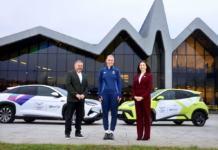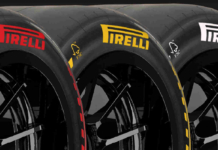Continental is driving forward innovative technologies and more sustainable solutions throughout its entire value chain – from sourcing more sustainable materials to recycling end-of-life tires. By 2030, the company aims to increase the share of renewable and recycled materials in its tire production to at least 40 percent – while always maintaining the same high safety and performance characteristics.Broadening the portfolio for urban public transportThe Conti Urban HA 5 NXT is now available in size 275/70 R 22.5. It also comes with sensors as standard for original equipment, which are available on request for the replacement market. The tire complements the portfolio around the Conti Urban HA 5, which was introduced in 2024, and offers fleet operators a targeted selection for urban public transport.Continental will present the Conti Urban HA 5 NXT and other solutions for buses and vans from October 4 to 9, 2025, at “Busworld Europe” in Brussels (Hall 7, Stand 784).* The share may vary between 55% up to 60%. The Conti Urban HA 5 NXT contains 32%-34% recycled and renewable materials, including recycled rubber and natural rubber. Furthermore, Continental sourced 22%-26% of ISCC PLUS-certified materials via the mass balance approach from bio, bio-circular, and/or circular feedstock.** The ISCC PLUS standard supports the transition to a circular economy and bioeconomy. This voluntary certification standard validates the sustainability characteristics of alternative feedstocks throughout the entire supply chain, from origin to end consumer*** Founded in 2010 through a multi-stakeholder initiative, the International Sustainability and Carbon Certification (ISCC) is a globally applicable and leading certification system designed to enhance traceable, sustainable, deforestation-free, and climate-friendly supply chains. ISCC certifications are widely recognized and cover sustainable agricultural biomass, biogenic wastes and residues, non-biological renewable materials and recycled carbon-based materials. The development and implementation of different certification standards is ISCC’s tool to promote its mission to mitigate climate change and bring more traceability into global markets and supply chains.**** Based on an externally certified lifecycle assessment model, following the methodology indicated in the ISO 14040/44, where both products were modelled using the same methodological assumptions.
New city bus tire launched with high share of renewable and recycled materials
İLGİ ÇEKENLER
Çok Okunanlar
Mansell: “With the car he deserves, Hamilton can win his eighth title”
The nightmare of...
McLaren, filming day in Bahrain and change of testing programme
McLaren, "first" on...
Vowles looks ahead with calm: “No doubts about how to proceed”
Williams' absence in...
Bahrain test, Pirelli differentiates the choices for the two sessions
Pirelli tests, the...
Williams already on track in Bahrain – VIDEO
The FW48 is...
Hamilton speaks out against Trump over criticism of Bad Bunny’s Super Bowl show
The halftime show...
Alonso on the Mercedes engine: “We need the same rules and conditions for everyone”
Compression ratio, what's...
Mercedes line-up for the tests in Bahrain: Russell and Antonelli on track every day
The favorites arrive...



























